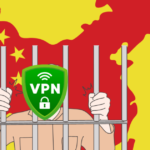As worries about online privacy increase among web users, various strategies have surfaced to help maintain anonymity and bolster security. Within this range of solutions, proxy servers and virtual private networks (VPNs) are distinguished as favorable options. Although each method protects web traffic and offers privacy, they serve different purposes and operate in distinctly different ways.
Proxy servers act as a gateway between users and the internet, altering users’ IP addresses to hide their actual locations. This provides a level of anonymity, making it difficult for websites and services to track users’ browsing activity. VPNs, on the other hand, will alter a user’s IP address and also create an encrypted tunnel between a user’s device and the internet, ensuring user data remains secure and private as it travels through the online world.
While both proxies and VPNs are designed to provide some privacy and security, it’s essential to understand their key differences in order to choose the best solution for your specific needs.
As we delve further into this article, we’ll explore the advantages and disadvantages of both technologies, so you can make an informed decision on which tool to utilize for your own online endeavors.
Table of Contents
VPN vs Proxy: Understanding the Fundamentals
What is a VPN?
A Virtual Private Network (VPN) is a technology that creates a secure and encrypted connection between your device and the internet. It does this by routing your internet traffic through a remote server, which changes your IP address and masks your online activities.
VPNs are widely used for enhancing privacy, security, and bypassing geographic restrictions on the internet. Some key features include:
- Encryption: VPNs use strong encryption protocols to protect your data and ensure confidentiality.
- Multiple Server Locations: VPN services typically offer a wide range of server locations around the world, allowing you to choose an IP address from a different country and access content that may be restricted in your region.
- Cross-Platform Compatibility: VPNs work across various devices and platforms, including desktops, laptops, smartphones, and tablets.
What is a Proxy?
A proxy is a server that acts as an intermediary between your device and the internet. It routes your internet traffic through a remote server, effectively changing your IP address and masking your online activities.
However, unlike VPNs, proxies do not provide encryption, making them less secure. Proxies are often used for bypassing censorship, accessing geo-restricted content, or improving network performance. Some key features of proxies include:
- No Encryption: Proxy servers do not generally provide encryption. While this typically make them faster than VPNs, it also means they’re less secure and may not protect your data from malicious third parties.
- Limited Server Locations: Proxies may offer fewer server locations compared to VPNs, which can limit your ability to bypass geographic restrictions.
- Targeted Usage: Proxy servers are usually targeted towards specific use cases, like web browsing or streaming, and may not be compatible with all internet services.

VPN vs Proxy Use Cases
Anonymity and Geo-Restriction
Both VPNs and proxies can be used for achieving anonymity and bypassing geo-restrictions. VPNs provide a higher level of anonymity by encrypting the entire internet connection, while proxies only reroute the user’s web traffic.
For streaming services, VPNs are typically more effective in bypassing geo-restrictions.
Gaming can also benefit from both VPNs and proxies, with VPNs being more secure and reliable. Proxies, on the other hand, usually result in faster speeds and lower latency versus a VPN, but the lack of security still tends to make them less suitable for gaming purposes.
In terms of torrenting, VPNs are clearly the better choice as they provide a more secure connection, protecting the user’s identity and data. Proxies are generally not recommended for torrenting due to their lack of encryption and lower security levels.
| Use Case | VPN | Proxy |
|---|---|---|
| Streaming | * Better for bypassing geo-restrictions * Provides a secure connection | * Suitable for simple IP address changes * May have faster speeds but less security |
| Gaming | * Secure and stable connection | * Lower security * Typically faster speeds and lower latency |
| Torrenting | * More secure and encrypted connection * Protects user identity and data | * Not recommended due to lack of encryption * Lower security levels |
Privacy and Security
IP Concealment
Both VPNs and proxies are used to enhance online privacy and security by hiding the user’s IP address. A proxy server acts as a middleman between a device and a website or web-based application, serving to conceal a user’s true IP address and location.
Similarly, VPNs encrypt all traffic and obscure the user’s IP address by rerouting their connection through a secure, remote server. This prevents websites from identifying the user’s actual IP and location, ensuring a higher level of privacy.
Encryption and Data Protection
In terms of data protection, VPNs offer significant advantages over proxies. A VPN encrypts all internet traffic between the user’s device and the VPN server, protecting the data from interception, tampering, and unauthorized access. This ensures that sensitive information, such as login credentials and personal data, remains secure even over public Wi-Fi networks.
On the other hand, proxies typically do not encrypt the data, leaving it more vulnerable to surveillance, cyberattacks, and data breaches.
ISP Tracking
Another aspect of privacy and security is protection from ISP tracking. Internet Service Providers (ISPs) have the ability to monitor and track their customers’ online activities. Using a proxy may hide the user’s IP address from websites, but it does not prevent the ISP from seeing the user’s traffic or their browsing history.
A VPN, however, encrypts all internet traffic, making it virtually impossible for ISPs to track or monitor the user’s online activities. This increased level of privacy helps users maintain their anonymity, avoid targeted ads, and protect their personal information from unwanted scrutiny.
Browsing and Internet Traffic
Since a VPN works by creating an encrypted tunnel between the user’s device and a remote VPN server, this provides several benefits for internet browsing.
- Security: VPNs use strong encryption protocols, like SSL and HTTPS, to protect user data from third-party interception, ensuring a secure internet connection.
- Privacy: By masking the user’s IP address, VPNs prevent websites, ISPs, and other online entities from tracking the user’s activities.
- Versatility: A VPN protects all internet traffic, not just browser activities, and can be used on various devices and platforms.
VPNs like ExpressVPN also have robust no-log policies, meaning they do not store any information about the user’s online activities. This ensures a high level of privacy for the user.
In contrast, since a proxy server simply acts as an intermediary between the user’s device and the internet, there are serious limitations to its effectiveness.
- Limited coverage: Proxy servers protect only specific types of web traffic, such as HTTP or SOCKS. In comparison, a VPN covers all types of internet traffic.
- No encryption: Proxies do not encrypt data like VPNs do, which leaves the user vulnerable to interception by hackers or surveillance by ISPs.
- Transparency issues: Some proxies, like transparent proxies, can even reveal the user’s original IP address, diminishing any privacy benefits.
There are also specialized proxies like SOCKS5 proxies (more on these in a moment), which are more versatile and can handle different types of traffic, including torrenting, although they still lack the encryption benefits that VPNs provide.
Types of Proxies and Their Uses
As you now know, proxies are intermediary servers that provide varying degrees of functionality, security, and privacy when accessing the internet. But there are actually several different types of proxies, each designed for specific purposes. This section will explore four common types: transparent proxies, SOCKS proxies, HTTP proxies, and distorting proxies.
Transparent Proxies
A transparent proxy, as the name suggests, is a type of proxy that does not modify the user’s requests or responses. It works as a simple pass-through, forwarding the user’s requests and the server’s responses without altering their content.
Common uses for transparent proxies include content filtering and caching to reduce bandwidth usage. However, they do not provide any additional level of security or privacy, as they do not hide the user’s IP address.
SOCKS Proxies
SOCKS proxies (short for Socket Secure Proxies) are a more versatile type of proxy that supports any kind of network traffic, not just HTTP. This makes them suitable for various applications, such as email, instant messaging, file transfers, and more.
One popular version of SOCKS is SOCKS5, which supports additional features such as IPv6 and authentication. While SOCKS proxies do provide an extra degree of anonymity, they still do not encrypt data, so users should be cautious about transmitting sensitive information.
HTTP Proxies
HTTP proxies are specifically designed to handle web traffic and are the most common type of proxy server. They can filter and cache content, improve response times, and provide a layer of privacy by masking the user’s IP address. This makes them a popular choice for web browsing and accessing geographically restricted content.
However, since HTTP proxies only work with web traffic, they are not suitable for all kinds of internet communication. Additionally, just like SOCKS proxies, they still do not encrypt data.
Distorting Proxies
Distorting proxies are designed to provide an extra layer of privacy by modifying the user’s IP address and request headers. This makes it even more difficult for websites or third parties to track users based on their online activities.
Although distorting proxies offer greater privacy than transparent and HTTP proxies, the level of anonymity achieved is still not as high as using a VPN, again due to the lack of data encryption.
Pros and Cons of VPNs and Proxies
VPNs (Virtual Private Networks) operate at the operating system level, encompassing your entire device’s internet traffic, which makes them ideal for use with mobile devices and independent applications. Companies and government agencies often use remote access VPNs to give employees a secure connection to their internal systems.
However, VPNs do have some shortcomings. Not all VPN services offer the same level of privacy, and free VPN services may log or sell your data to third parties. Additionally, a VPN’s reliable performance and connection speed depend on the service provider’s infrastructure. Some locations may suffer from slow speeds or limited access to specific content.
Proxies include the common proxy servers such as HTTP proxies, SOCKS proxies, and transparent proxies. They’re often used for tasks like bypassing content restrictions on streaming sites or masking IP addresses when torrenting. Since proxies typically work at the app level, they can be a more lightweight solution for specific use cases.
However, as we’ve hit home here more than once, they do not encrypt your data like VPNs, leaving sensitive information such as emails and files vulnerable to hackers and man-in-the-middle attacks. Free proxies can be particularly risky because they may inject ads, malware, or collect your identifying information for nefarious purposes.
Additionally, proxies are generally less reliable than VPNs, leaving users susceptible to interruptions and unstable connections.
In conclusion, while both VPNs and proxies provide benefits for online privacy and security, they have distinct advantages and drawbacks. VPNs offer stronger encryption and broader protection at the operating system level, making them well-suited for comprehensive online security.
Meanwhile, proxies provide a lightweight solution for specific use cases, such as bypassing content restrictions and anonymizing app-level web traffic. Ultimately, your choice between a VPN and a proxy should be informed by your individual needs and the level of privacy and security you require, on a use-by-use basis.

Top VPN and Proxy Services
In this section, we will discuss two popular VPN and proxy services, [ExpressVPN] and [NordVPN].
ExpressVPN
ExpressVPN is a highly reputable VPN service that offers fast speeds and strong security features. It has over 3,000 servers in 94 countries, providing users with many server options for connecting. Some key features of ExpressVPN include:
- 256-bit AES encryption
- No-logs policy
- DNS/IPv6 leak protection
- Kill switch
The service is compatible with various devices, such as Windows, macOS, Android, iOS, routers, and more. ExpressVPN also supports multiple simultaneous connections, allowing users to protect several devices at once.
While ExpressVPN does not offer a built-in proxy service, it works well with various proxy tools, such as HTTP/HTTPS/SOCKS proxies, giving users the flexibility to use a proxy alongside the VPN if desired.
NordVPN
NordVPN is another leading VPN provider known for its robust security and privacy features. It has a vast network, with over 5,200 servers across 60 countries. Key features of NordVPN include:
- Double VPN (encrypting data twice)
- CyberSec (blocking malicious websites and ads)
- 256-bit AES encryption
- No-logs policy
- Kill switch
NordVPN is compatible with multiple platforms, including Windows, macOS, Android, iOS, and Linux. It supports up to six simultaneous connections, allowing users to secure multiple devices with one account.
In addition to its VPN service, NordVPN offers a Smart DNS proxy called “SmartPlay.” This feature is specifically designed to unblock geo-restricted streaming services, such as Netflix and Hulu, without compromising speed or stability.
SmartPlay is automatically activated when connecting to a NordVPN server, providing a seamless experience for users who wish to utilize both VPN and proxy services.
Frequently Asked Questions
What are the main differences between VPNs and proxies?
VPNs (Virtual Private Networks) and proxies operate differently. A proxy server acts as an intermediary between a user’s device and the internet, masking the user’s IP address without encrypting their data. A VPN, on the other hand, encrypts the user’s internet connection and masks their IP address, providing a higher level of privacy and security.
Which is more secure, a VPN or a proxy?
A VPN is generally considered more secure than a proxy. This is because VPNs use encryption to protect the user’s data, whereas proxies only mask the user’s IP address. A VPN also provides a secure tunnel for the user’s internet traffic, ensuring that their data remains safe from hackers and eavesdroppers.
How do VPN and proxy services affect internet speed?
Both VPNs and proxies can impact internet speed, though the degree to which they do varies. Proxies may cause minimal speed variations, as there is less processing involved. VPNs can cause more noticeable slowdowns due to the encryption and decryption processes. However, the speed impact largely depends on the quality and performance of the chosen VPN or proxy service.
Can a VPN and a proxy be used together for added privacy?
Yes, a VPN and a proxy can be used together for added privacy. This combination can provide increased anonymity, as both services work to mask the user’s IP address. However, it is essential to choose a reputable VPN and proxy service to ensure a secure and stable connection.
Which is more suitable for bypassing geo-restrictions?
VPNs are generally more suitable for bypassing geo-restrictions, as they offer a wider range of server locations for users to choose from. Additionally, VPNs can encrypt the user’s internet connection, making it more difficult for websites and services to detect and block users based on their location.
What are the key factors to consider while choosing between a VPN and a proxy?
When choosing between a VPN and a proxy, users should consider factors such as security, privacy, speed, compatibility with their devices, and the intended use case. Users seeking higher privacy levels and encryption should opt for VPNs.
If speed and minimal impact on internet performance are more important, a proxy may be a better option. Ultimately, it really just depends on the user’s specific needs and preferences.
- Amazon Email Phishing: How to Identify and Avoid Scams - May 11, 2025
- Malwarebytes vs McAfee: Decoding the Ultimate Antivirus Battle - May 11, 2025
- Best Antivirus for Windows 10: Expert Recommendations for 2023 - May 11, 2025










5 thoughts on “VPN vs Proxy: Unraveling the Key Differences for Better Online Privacy”